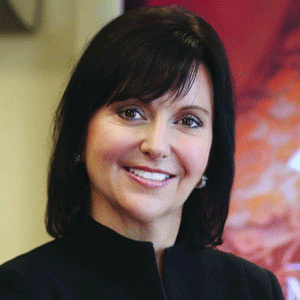THANK YOU FOR SUBSCRIBING

New Technologies in the Travel and Hospitality Industry
Onnie Fong, Chief Information Officer at KKday


Onnie Fong, Chief Information Officer at KKday
Your Current Roles and Responsibilities as the Chief Information Officer at KKday
As the CIO of KKday, I am currently responsible for shaping the company’s technological landscape and safeguarding its digital assets. My responsibility encompasses a broad spectrum of tasks, from overseeing IT equipment purchases to orchestrating comprehensive cybersecurity strategies. In essence, I expect myself to become the bridge between technology and KKday's success, ensuring that IT investments drive growth, efficiency, and security.
Main Obstacles Face by the Travel and Hospitality Industry
Most travel experience providers in Asia have not digitized and lack an automatic system for operation, pushing up the demand for digital transformation.
During the Covid-19 pandemic, the travel industry was severely affected. This included airlines, hotels, traditional travel agencies, and even small suppliers or individuals. Many of them had to reduce their operations or even shut down because of the pandemic. However, some sectors used this opportunity to complete digital transformation and prepare for the reopening of international travel.
KKday has observed that in the Asia-Pacific region, up to 80 percent of travel experience providers have not yet undergone digital transformation. Many of these providers are small travel agents or individuals who offer a wide variety of travel services, such as water activities and cultural experiences. In the past, they had to use a lot of manpower and time to handle customer orders and inquiries, which often led to mistakes in orders. These providers also haven't been able to establish automated systems.
To address the challenges faced by travel providers, KKday designed Rezio, the SaaS booking system, during the pandemic. This system helps travel suppliers set up booking websites, control inventory, integrate orders from different channels, collaborate with other businesses, and use QR code verification services, all in one platform. Currently, more than 3,500 merchants worldwide have adopted this system, serving over six million travelers. Additionally, KKday introduced the KKday marketplace, allowing travel experience providers to create their brand stores and list their products on the KKday platform, reaching a global audience. Over 1,000 global businesses have already joined this service.
With the ongoing recovery of the cross-border travel market in the Asia-Pacific region, it is believed that the pace of digital transformation in the travel industry will continue to accelerate.
Technologies Leveraged to Emerge as a Unique Platform in the Tourism Ecosystem
Multi-Languages by AI Services
When serving travelers from various countries, language can be a significant challenge. To address this issue, a lot of AI technology is being used to improve translation quality.
Multi-Currency by Different Country Payment Gateway
For travelers from different countries, the payment process can be tricky. The goal is to assist travelers in reducing international transaction fees and provide them with payment methods they are comfortable with. This is achieved by integrating with payment systems from various countries.
Multi Supplier by API Connection
While 80 percent of suppliers don't have their own automatic systems, there are still 20 percent who do, and they can be connected through APIs. With over a hundred suppliers that can be integrated, the use of API technology for connection and management becomes a unique and essential factor.
Rezio - Enabling Travel Experience Providers to Build an O&O Store and Selling in Multiple Places
As previously mentioned, Rezio, the SaaS booking system by KKday, has been designed for suppliers without their own systems. This system serves two main purposes; firstly, it provides various types of suppliers with their automated operation systems, including offline access points. Secondly, it helps suppliers easily connect to different platforms, creating sales channels. The ultimate goal is to confirm travelers' orders more quickly.
No matter which industry you are in, it's essential to learn how to identify pain points and address them
Emergence of Sustainability and Responsible Tourism
To establish a robust and healthy operational system that benefits both our customers and travel suppliers, reinforcing our commitment to sustainable growth and responsibility within the travel industry. Three major actions are below-
ISO/BS: Protecting Customer Data
Since 2019, KKday has been implementing ISO/BS verification to reduce the risk of personal information leakage through an annual PDCA (Plan-Do-Check-Act) cycle.
To Monitor Supplier Quality
We keep an eye on factors that affect the suppliers’ service quality, including customer service, order reviews, supply stability, and conducting reputation surveys.
To Explore New and Local Tourism Experiences
We continuously search for new ways to enhance local travel experiences, providing a wide range of options for travelers to choose from and deepening their engagement with the local culture and activities.
Advice for Young Professionals Who Seek a Career in the Travel Industry
No matter which industry you are in, it's essential to learn how to identify pain points and address them. For example, in the travel industry, KKday has introduced automated operation systems for travel experience providers to solve operational challenges, which has also led to new B2B opportunities for the company.
The travel industry may sound like a joyful sector, but meeting various traveler needs can be quite demanding. For instance, travelers often encounter issues during their journeys, which can turn the entire travel experience into a difficult or unhappy one. Service providers may need to invest a significant amount of manpower and time in resolving these issues for travelers. However, automation systems can enhance service efficiency and improve the quality of travelers' experiences.
So, apart from possessing technical skills, the most crucial aspect is how to leverage these technical skills to enhance the service capabilities of various players in the travel industry, including upstream, midstream, and downstream stakeholders. This becomes a critical skill set.
Weekly Brief
I agree We use cookies on this website to enhance your user experience. By clicking any link on this page you are giving your consent for us to set cookies. More info
Read Also













